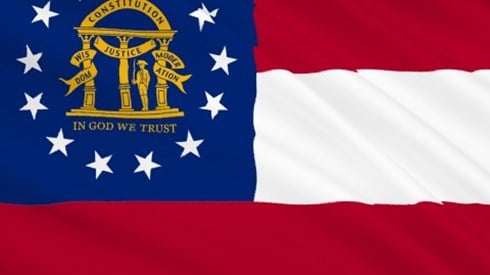Captive Domiciles Update Their Laws To Attract and Keep Captive Insurers

July 05, 2017

States with captive insurance laws are not resting on their laurels but are continuing to enhance those laws to attract new captive insurers and retain current ones with at least six state captive domiciles so far this year passing measures amending their captive statutes.
Vermont
For example, Vermont, whose 1981 captive law makes it one of the nation's oldest captive domiciles and with 584 captives at year-end 2016 is the largest US captive domicile, continues to enhance its captive law.
The latest legislative changes approved earlier this year by Vermont lawmakers add a new type of captive—known as an agency captive and controlled by an insurance agency or brokerage—that can be formed.
The Vermont measure also expands a prior law to allow all types of captives to be placed in dormant status, if the parent so chooses, significantly reducing overhead expenses and allowing rapid reactivation.
The measure allows "easy reactivation" when the parent wants to do that, said David Provost, deputy commissioner of captive insurance, Vermont Department of Financial Regulation, located in Montpelier.
The 2017 amendments to Vermont's captive law continue state lawmakers' drive to keep the Vermont statute up to date.
For example, last year, legislators amended the captive statute to allow captive cells to be converted from a protected cell to an incorporated cell, as well as to allow cells to be transferred or sold, and to permit cells to be converted to stand-alone captives of any type, while 2015 amendments reduced from three to one the number of individuals required to sign a captive's incorporation papers.
Texas
Newer and smaller domiciles also are amending their captive statutes. For example, in Texas, whose original captive law was enacted in 2013, and which now has nearly three dozen captives, lawmakers approved measures in the current legislative session that, among other things, allow Texas captives to reinsure directly with nonaffiliated, nonadmitted reinsurers in domestic and offshore markets.
"For example, for a Texas captive currently ceding 100 percent of its business to a Vermont captive in order to be able to reinsure the business in the Bermuda market, the new law allows the Texas captive to go directly to the Bermuda market and eliminate the need to maintain the Vermont captive," according to an analysis by Burnie Burner, a partner with the law firm Mitchell, Williams, Selig, Gates & Woodyard PLLC in Austin.
Competition for Revenues
The continued fine-tuning by state lawmakers of captive statutes is not surprising given the high degree of competition for captives, which, through taxes they pay and additional staffers hired by their managers, can generate new revenues for captive domiciles.
"There have been a lot of changes. Each state wants to be the best in its class," said Michael Serricchio, a managing director with Marsh's Captive Advisory Group in its Norwalk, Connecticut, office.
"Bit by bit we are enhancing our law to encourage sponsors to relocate their captives to our state and attract new captives," said Josh Magden, president of the Texas Captive Insurance Association.
One change being pushed by captives and their managers and being embraced by lawmakers allows captives to enter dormant status. That can happen, for example, captive experts note, when the commercial market is competitive and the financial appeal for a parent to tap its captive to cover risks is significantly reduced.
But market conditions can quickly change, notes Michael W. Teichman, chairman of the Delaware Captive Insurance Association legislative committee and a director with the law firm Parkowski, Guerke & Swayze, P.A. in Wilmington, Delaware.
By allowing a captive to go into dormant status, which is allowed under legislation earlier approved by Delaware lawmakers, the captive does not have to pay premium taxes or file annual reports and only has to maintain capital and surplus of $25,000 or another amount as determined by state captive regulators.
"You don't have to start all over again" when market conditions change and parents want to reactivate their captives, Mr. Teichman said. "You can do it right away."
Other states that passed measures this year to allow captives to enter dormant status include Connecticut, Montana, and Tennessee.
Montana
"You don't have to go through the application process. If the market changes, you are ready to go," said John Huth, vice president of the Montana Captive Insurance Association, adding that under the dormancy provision, a captive only has to pay an annual $1,000 dormancy fee and is exempt from premium and income taxes.
Aside from adding dormancy provisions to their captive statutes, state lawmakers made other changes as well.
Tennessee
For example, legislation passed by Tennessee lawmakers cuts penalties for late premium tax payments. Under the new law, captives that do not pay premium taxes on time are liable for a $500 penalty during the first month of delinquency and another $500 assessment during the second month of delinquency. Certain interest charges also will be assessed.
By contrast, under prior law, captives could have been assessed as much as $1,000 for each day premiums were late.
In addition, the measure eases the process for a protected cell captive to be spun off as a stand-alone captive or transfer from one Tennessee cell facility to another.
The measure also includes a dormancy provision under which captives only have to maintain capital and surplus of $25,000 and are exempt from premium taxes.
"We have worked hard to make sure Tennessee has the most flexible and business friendly captive insurance law in the country, and these changes will help Tennessee maintain its preeminent position as one of the top domestic domiciles," said Kevin Doherty, president of the Tennessee Captive Insurance Association and a member of the law firm Dickinson Wright PLLC in Nashville.
Georgia
Meanwhile, legislation passed earlier this year by Georgia lawmakers streamlines the process for forming a captive, removes a requirement to have the words "captive insurance company" in the captive's name, and permits captives to form as limited liability companies.
"There has been renewed interest by lawmakers to making Georgia a top-tier and competitive domicile," said Tony Roehl, a partner with Morris, Manning & Martin LLP in Atlanta.
July 05, 2017

